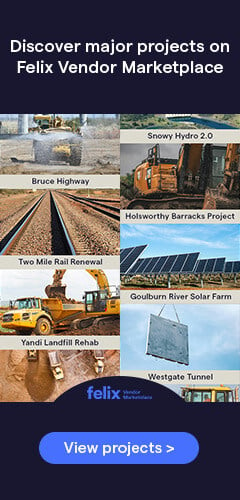How effectively do you target supply chain opportunities?

A supply chain consists of all parties involved, directly or indirectly, in fulfilling a customer request. With billions of dollars spent each year on goods, services and capital works, learning how to target supply chain opportunities has never been more important. For construction companies, this means there are many opportunities on an annual basis to tender, subcontract or supply to these government or commercial projects.
Know where you fit in the supply chain
It's important to ask questions about your business and understand where you sit, especially in terms of project ranges.
Why? It's quite simply really. For your business, a clear understanding of your company's standing provides a shortcut as to who you should be talking to. For your clients, it reinforces that you understand the levels of contracting needed for effective risk management, track record, willingness to cooperate with other providers, degree of innovation in the proposal.
- identify your customer base by recognising who will contract businesses like you (one tier above in supply chain)
- Establish your supply chain by recognising who businesses like you will contract to (the tiers below in supply chain)
- Government contracts in particular evaluate to see your tenders include multiple subcontracting options (in case of breakdowns, unreliable subcontractors etc) as part of your risk management strategy.
What this means for your business
Companies DIRECTLY tendering to government
- Know what government requirements are and determine if you and your current sub contractors and/or suppliers can meet these before tendering
- Continually review your subcontractors and/or suppliers and have multiple businesses where possible in your supply chain (risk mitigation for govt)
- Make sure that they can all deliver in the required time frame and to the required standard (share information with them)
- Continually review your standards and if you can deliver better value for money, come and talk to government procurement divisions
- Know who can help you improve your business
Companies NOT DIRECTLY tendering to government
- Know who has won the contract so you can market your business to them for possible sub-contract or supply opportunities (good market research and good marketing)
- Know what the government requirements are for the winning tenderer so you can help them meet their contractual obligations as part of the supply chain
- Know what is required to supply direct to government before you apply to tender – some companies will not meet the standards or have the necessary capability or capacity. Your opportunity may be to become the ‘supplier of the supplier.’
- Know who can help you improve your business!
Where to find the opportunities
The process of targeting supply chain opportunities can be challenging, especially not knowing where to start.
One of the most important steps in determining your customer base is to determine your place in the supply chain. If you'd like to gain an understanding of who you should be talking to - download this quick guide to help you determine if your company has what it takes to target Tier 1, 2, 3, 4 or 5 projects.

Related Articles

NorthLink WA construction to start mid-2016
John Holland Pty Ltd has been awarded the first construction contract for the $1.12 billion NorthLink WA project. In officially announcing the contract today, Minister for Major Projects Paul Fletcher said the contract was a significant step in realising the vision of NorthLink WA.

3 advantages of setting default rates
Whether you're a contractor or a supplier, saving time and money are likely to underpin your business efforts. When quoting, suppliers have to consider fleet or package requirements, location, duration, value, the client and more. The same is true for the contractors who are required to manage budgets, order materials, client objectives, resources and supply chains. For both parties to a hire contract, default rates represent an effective way to get the ball rolling.

Whittens awarded $22m Mount Pleasant Operation works
Get the latest project news
- updates on Australia's pipeline of state and federal projects
- fresh contract awards from major contractors and builders
If you're looking to contact us about other matters, please contact us.

